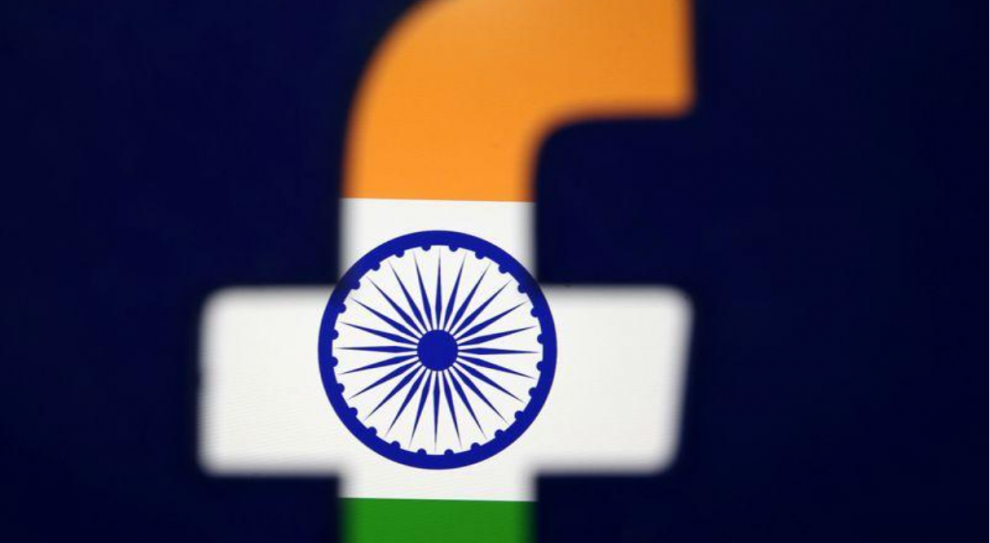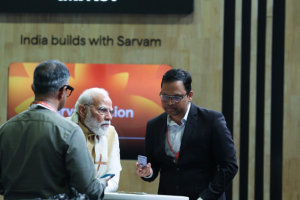(ATF) Joining global efforts to regulate the social media explosion and rein in the influence of the tech giants, India announced new rules on Thursday that could force WhatsApp, Signal, Telegram and others to break their end-to-end encryption assurance.
The rules would also pose a fresh challenge to the operations of Silicon Valley internet giants like Facebook, Twitter, and Google in a huge market that is key to their global expansion.
In the recent past, India had pulled up Facebook, Twitter, and WhatsApp for their content policies and banned 267 Chinese apps that included TikTok, WeChat, Snack Video, and the likes.
Read more: China helping its 300 million elderly to cross the ‘digital divide’
In the latest effort by Prime Minister Narendra Modi’s government to tighten control over big social media and regulate it and streamed content, India unveiled a new set of guidelines for intermediaries in what it called “soft touch oversight” rules, to counter the rise of problematic content online like false news and violent material.
These were also needed to hold social media and other companies accountable for “misuse and abuse”, said Shankar Prasad, the minister of electronics and information technology.
Christened Intermediary Guidelines and Digital Media Ethics Code, these rules will be legally enforceable in three months from March and will mandate social media, online streaming services and digital news services including Facebook and Twitter to remove content within 24 hours of a complaint being made.
They will also force social media companies to appoint a chief compliance officer and a “grievance redressal officer”, both based in India.
DISCLOSE ORIGIN
Tech companies will also have to disclose the origin of a “mischievous tweet or message” if asked by an Indian court or the government.
Social media firms should be “more responsible and accountable,” Prasad, said justifying the move by comparing Twitter’s refusal to take down content after protesting farmers went on a rampage in New Delhi in January to its actions after violence at the US Congress days earlier.
“If there is an attack on Capitol Hill in Congress, social media supports police action. But there is an aggressive attack on Lal Qila … you have double standards,” he said, calling it “unacceptable”.
A separate “self-regulatory body” led by an official nominated by the government will have the power to warn or censure a platform, force it to make an apology or include a “warning” or “disclaimer” about content.
LARGEST MARKET
India is the largest market by users for both Facebook and its messenger service WhatsApp.
Facebook’s social network is used by 410 million people in India and its WhatsApp messaging service by 530 million, said Prasad. YouTube has 448 million users, Instagram 210 million and Twitter 17.5 million, he said.
Big social media firms will also be obliged to remove content within 36 hours of receiving a legal order, according to the rules.
The government said companies need to assist in probes or other cyber security-related incidents within 72 hours of receiving a request. They must also disable within a day any post depicting an individual in a sexual act or conduct, said the rules.
RULES WELCOMED
Facebook said it welcomed rules that prescribe ways to address challenges on the web. “The details of rules like these matters and we will carefully study the new rules,” it said in a statement. Facebook-owned WhatsApp declined to comment.
A Twitter spokesman said the company would study the guidelines and looked forward to continued engagement with the Indian government.
“We believe that regulation is beneficial when it safeguards citizen’s fundamental rights and reinforces online freedoms,” the company said in a statement.
While Prasad claims these rules will benefit both users and the government, experts say they would violate people’s privacy and lay the platform for a surveillance state.
PLATFORMS’ REACH
“Given the size and reach of social media platform, some of the new rules could be very difficult or maybe impossible to implement by the media companies,” Anoop Mishra, a social media and PR strategist told Asia Times Financial.
“For instance, the rule to remove or disable access to content that is illegal or offensive within 24 hours of a complaint is too short to implement. Besides, there are at least 10 different languages used in social media in India. It is impossible to devise artificially intelligent algorithms to monitor all undesirable contents or keywords in that many languages,” Mishra added.
The other thorny issue is restricting content access to minors.
The rules mandate self-classification for streaming services on content that is for 13-plus, 16-plus or adults on the basis of age, sex, violence and nudity.
FAKE PROFILES
According to Mishra, a huge section of minors open social media accounts using fake profiles and identities. “How can a company identify such users?” Mishra queried.
The rules are also a step-up of a clampdown on encrypted platforms such as WhatsApp or Signal to spread fake news or carry out illegal activities, experts said, adding that this would require companies to break their end-to-end encryption assurance, which is something they will resist fiercely.
Tech firms are coming under tighter scrutiny worldwide. Facebook faced a backlash last week from some publishers and politicians after it blocked news feeds in Australia in a dispute with the government over revenue-sharing.
That prompted last-ditch changes by Australia in a law passed on Thursday to ensure Alphabet Inc’s Google and Facebook pay media companies for content, a step that nations such as Britain and Canada want to follow.
ANTITRUST SCRUTINY
In the US too, nearly all state attorneys general are separately investigating Google, while three other tech giants, Facebook, Apple and Amazon are also facing antitrust scrutiny.
The European Union too in the recent past has crafted new rules for the tech giants.
The new Indian rules will also require video-streaming platforms like Netflix and Amazon’s Prime Video and YouTube to classify content into five categories based on users’ age, the government said.
These rules call for a three-tier regulation mechanism for over-the-top (OTT) platforms and require them to self-classify their content into five categories based on age suitability.
TWO TIERS
The first two tiers consist of a self-regulatory mechanism – one at the company and the other at industry level – followed by the third, a government-controlled oversight system under the information and broadcasting (I&B) ministry. The I&B ministry publish charters for self-regulating bodies and also set up an inter-departmental committee to hear grievances arising out of the self-regulating mechanism.
The committee can delete or modify content for preventing incitement towards the commission of a cognisable offence relating to public order.
“Overall, the new rules would be a big setback for social media advertising,” Chetan Deshpande, a digital profit consultant told ATF. “Increasing scrutiny and monitoring are already slowing social media advertising significantly,” he added.
- With reporting by Reuters
Also on ATF:
Social media ad-spends take a hit as Twitter brawls with India
Call for social media oversight in India after Facebook exec quits
























